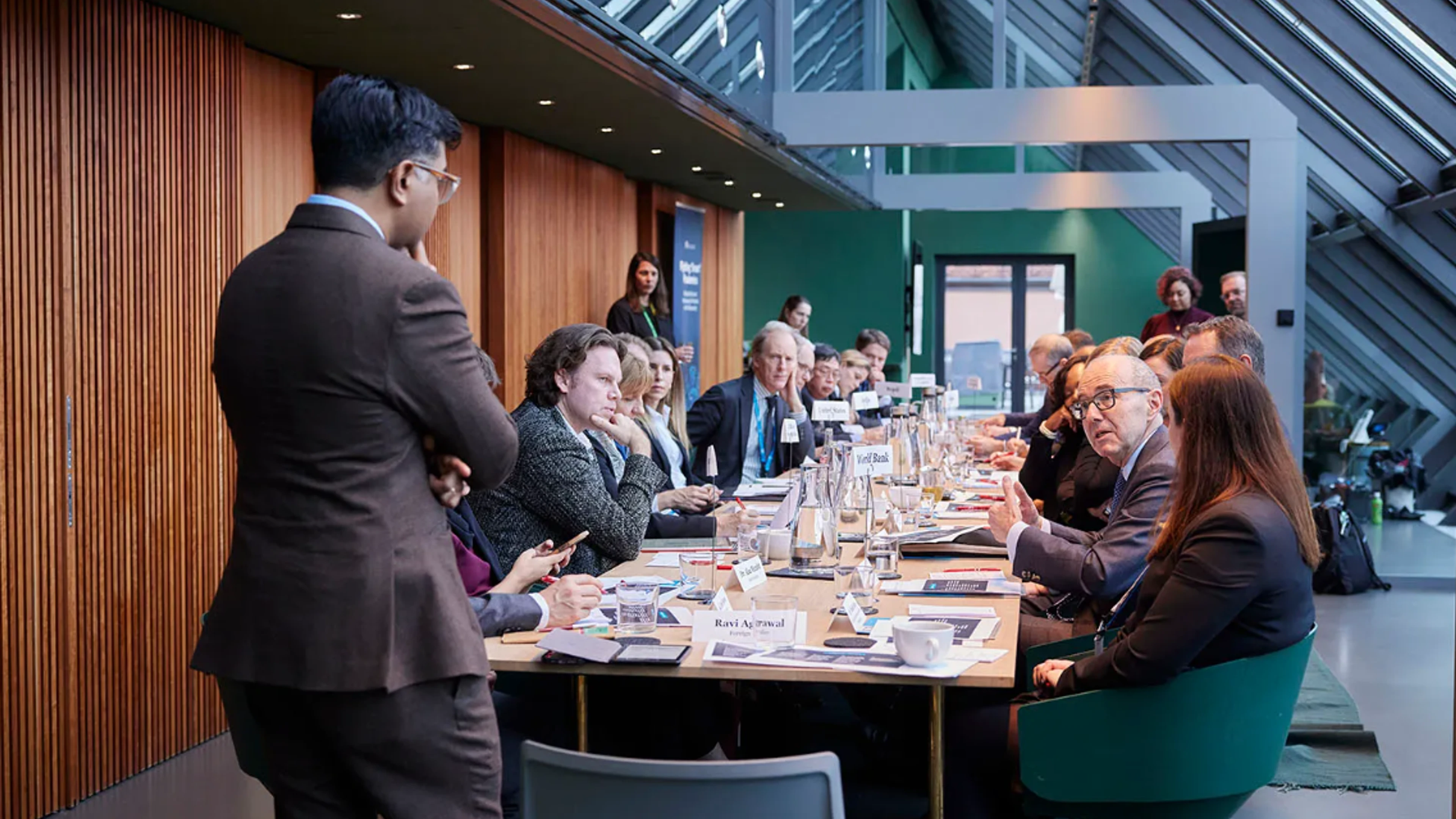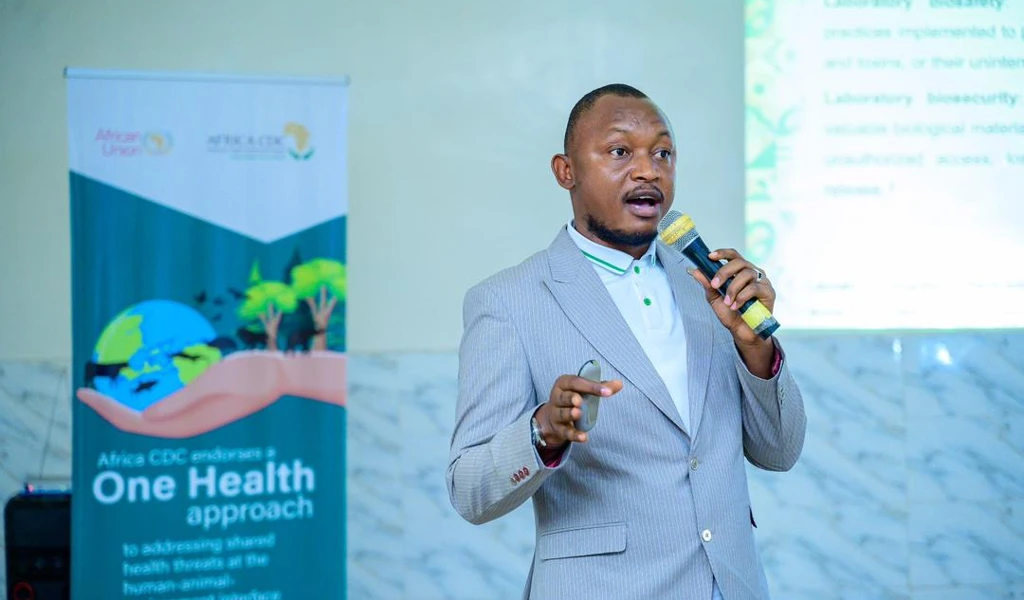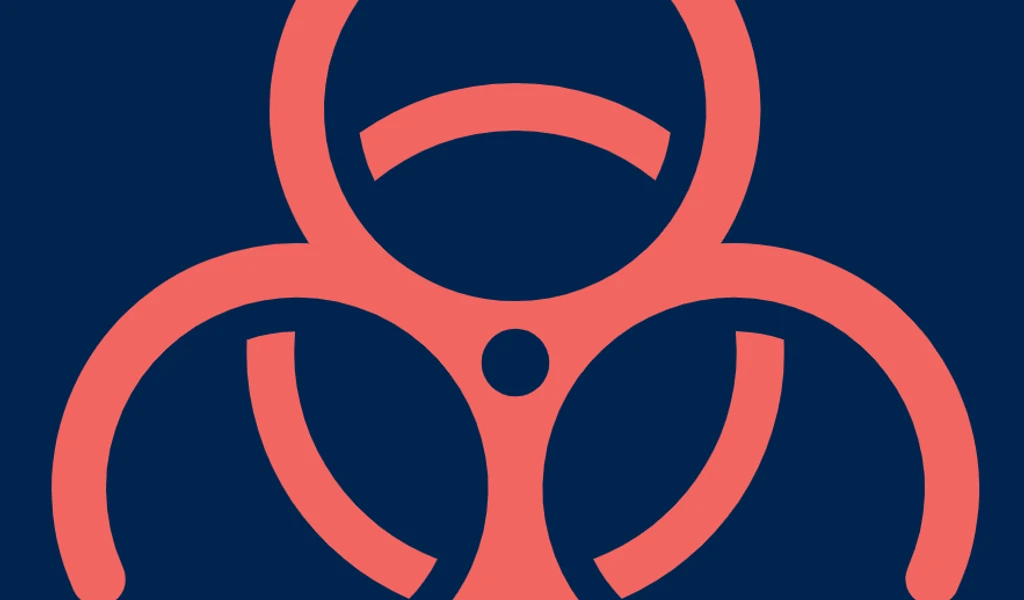Bringing the 100 Days Mission to the Munich Security Conference and global security leaders

COVID-19 and other outbreaks have starkly shown that epidemics and pandemics are not just a health sector issue, they are also issues of national and global security. That’s in part why, last September, CEPIannounced the establishment a new, dedicated biosecurity function enabled by generous support from Global Affairs Canada.
This February, CEPI Board Chair, Jane Halton, and Director of Biosecurity, Andrew Hebbeler, travelled to Munich, Germany to attend the Munich Security Conference (MSC). The MSC is a leading global forum for debating international security issues and advancing diplomatic initiatives to address the world’s most pressing security concerns. They highlighted the crucial role of the 100 Days Mission in stopping future outbreaks, regardless of whether outbreaks originate naturally, due to laboratory accidents, or as a result of deliberate misuse.
The faster we can develop safe and effective vaccines, therapeutics and diagnostics for a disease outbreak and enable global access to them, the less human and socioeconomic suffering and the more lives we can save. The capabilities to achieve the 100 Days Mission, a bold ambition to produce new vaccines within 100 days following the emergence of viral threat with pandemic potential, is within our reach. By investing now in global preparedness capabilities, we can ensure that we respond faster and more equitably to the next Disease X.
While many organisations across the global health and science communities have embraced the 100 Days Mission, alongside G7 and G20 nations, these capabilities are also crucial for the security community. Against a backdrop of emerging and converging technologies, we have a collective responsibility to prevent and prepare for infectious disease outbreaks, and we need new and stronger mechanisms for cross-sector collaboration. Through its role spearheading the 100 Days Mission, CEPI will drive efforts to improve global biosecurity and help transform the vision of a world free from epidemic and pandemic threats from idea to reality.
To support these efforts, CEPI and MSC have signed their first-ever partnership agreement, which will enable deeper collaboration on global security issues.
Our partnership launched with a side event co-hosted at MSC with Foreign Policy, titled ‘Fighting “Smart” Pandemics: Mitigating Risks and Harnessing the Potential of AI for Biosecurity.’ The event brought together health and security leaders from across sectors and around the world for a simulation exercise based on the emergence of a hypothetical virus spreading around the world. The exercise was undertaken to help identify opportunities to reduce global biosecurity vulnerabilities.
The expert group provided unique insights on how to maximise benefits and minimize risks of using AI technologies, which inform and stand to advance the 100 Days Mission, including the need to:
- Enhance partnerships across sectors to better understand the potential of using AI to detect emerging infectious diseases, design and manufacture new vaccines and other countermeasures, and respond to health emergencies
- Develop and implement performance-based biosafety and biosecurity standards for researchers to build competence and confidence in vital scientific discovery
- Invest sustainably in biosafety and biosecurity to advance global preparedness and resilience to future epidemic and pandemic threats.
A full summary report on the simulation exercise and these findings has now been published by CEPI and FP Analytics, the independent research division of Foreign Policy .
This exercise follows a roundtable discussion that CEPI co-convened in partnership with Foreign Policy at the United Nations General Assembly in September 2023, where senior-level representatives across government, civil society and industry explored benefits and risks at the nexus of AI and biosecurity.
CEPI is eager to work with global partners to bring attention to these urgent issues and catalyse new and enduring solutions to respond to future epidemics and pandemics.
In the coming months, we look forward to sharing more about how CEPI is driving stronger global biosecurity, as part of CEPI’s first-ever biosecurity strategy.
This blog was authored by CEPI's Biosecurity Team: Andrew Hebbeler (Director of Biosecurity), Zoe Adler (Biosecurity Manager) and Neil Cherian (Senior Biosecurity Manager).


.webp)
